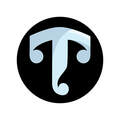Tips to Chasing Customers for Payment
When you’re a small business owner, sole trader or freelancer, asking for payment on overdue invoices can be a delicate matter. Without an accounts person or department, sometimes you’re trying to secure new work and chase invoices from the same person. That can be an awkward tightrope to walk.
Here are five tips for chasing payments while maintaining customer loyalty:
Automate reminders
Set friendly payment reminders that go out automatically – they tell clients they’re missed a payment without making it personal. It’s like your invoicing platform is giving them a nudge, rather than you doing it yourself. You can sign it off with just your business name, rather than your own.
Find out who’s behind the payments
Is there another person at the business who’s in charge of accounts or payments? Ideally, you want to be selling your services to your usual contact and chasing someone else to pay your invoices.
Enlist help from a friend
If you have a friend who also has a small business, become each other’s accounts support. Set your friend up with an ‘[email protected]’ address and they can send out email reminders and follow-ups to your clients, or call them about the invoice. Maybe you can do the same for them.
Set expectations when you negotiate the job
Firm and clear payment terms make it easier to get paid faster and keep that cash flowing. Set out your terms up front – it’s much easier to talk about your payment expectations when you organise the job, rather than once the invoice has been sent. For persistently slow payers, consider offering an early payment discount or ask for more money upfront for the next job.
Be nice, but firm
There’s no need to be rude or aggressive to your clients when chasing payment; you want to maintain a positive relationship. However, at some point you need to cut off their credit. Often saying ‘I’m very happy to do that for you, just waiting on payment of that last invoice’ will give them the impetus they need to pay you. But if they persistently don’t pay, no matter how much you like the client, you’re not providing a free service! Stop working for the client and chase those outstanding invoices more assertively.
Here are five tips for chasing payments while maintaining customer loyalty:
Automate reminders
Set friendly payment reminders that go out automatically – they tell clients they’re missed a payment without making it personal. It’s like your invoicing platform is giving them a nudge, rather than you doing it yourself. You can sign it off with just your business name, rather than your own.
Find out who’s behind the payments
Is there another person at the business who’s in charge of accounts or payments? Ideally, you want to be selling your services to your usual contact and chasing someone else to pay your invoices.
Enlist help from a friend
If you have a friend who also has a small business, become each other’s accounts support. Set your friend up with an ‘[email protected]’ address and they can send out email reminders and follow-ups to your clients, or call them about the invoice. Maybe you can do the same for them.
Set expectations when you negotiate the job
Firm and clear payment terms make it easier to get paid faster and keep that cash flowing. Set out your terms up front – it’s much easier to talk about your payment expectations when you organise the job, rather than once the invoice has been sent. For persistently slow payers, consider offering an early payment discount or ask for more money upfront for the next job.
Be nice, but firm
There’s no need to be rude or aggressive to your clients when chasing payment; you want to maintain a positive relationship. However, at some point you need to cut off their credit. Often saying ‘I’m very happy to do that for you, just waiting on payment of that last invoice’ will give them the impetus they need to pay you. But if they persistently don’t pay, no matter how much you like the client, you’re not providing a free service! Stop working for the client and chase those outstanding invoices more assertively.
Other Bulletin Articles



